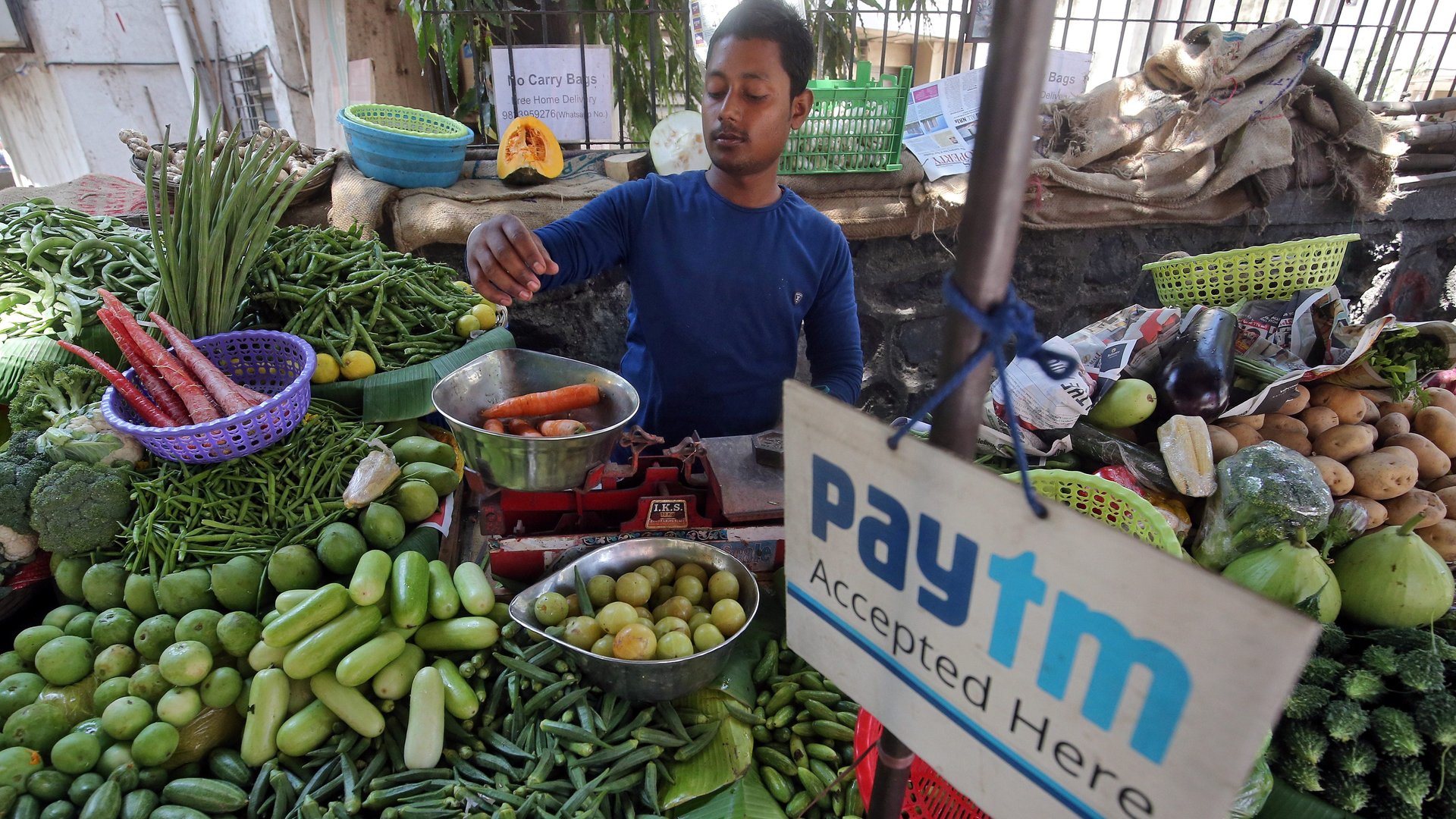Can Paytm make every cent of its $1 billion funding round really count?
India’s largest homegrown fintech company, Paytm, yesterday (Nov. 25) added a whopping $1 billion to its corpus. This round marked the reaffirmed commitment of the firm’s largest investor, Softbank, and the new interest shown by T Rowe Price. The Noida-based digital transactions company now plans to pump money into its payments and financial services business to face stiffening competition.


India’s largest homegrown fintech company, Paytm, yesterday (Nov. 25) added a whopping $1 billion to its corpus. This round marked the reaffirmed commitment of the firm’s largest investor, Softbank, and the new interest shown by T Rowe Price. The Noida-based digital transactions company now plans to pump money into its payments and financial services business to face stiffening competition.
However, experts believe that merely raising huge amounts won’t help Paytm escape real challenges for long.
“(Fundraising) strengthens the company for a longer fight, but I don’t see this as indefinitely sustainable: buying customers with cashbacks and discounts and throwing more millions of dollars at them when the market heats up. Customers are fickle and use multiple apps and payment systems,” Prasanto K Roy, an independent tech policy analyst, told Quartz. “Paytm has unsustainable cash burn, and it has to get to profitability. Another $1 billion isn’t necessarily that path.”
Owned by One97 Communications, Paytm was founded by Delhi College of Engineering alumnus Vijay Shekhar Sharma in August 2010. At the time, India’s digital payments ecosystem was nascent and the fledgling company’s direct competitors were only a couple of other homegrown brands. Over the years, though, the market has become crowded with not only new local players, but deep-pocketed global behemoths such as Amazon, Google, and Walmart-owned PhonePe, arriving on the scene.
Paytm’s userbase took a hit when mobile wallets were ordered to become know your customer (KYC)-compliant last year. To add to its woes, the rise of the Unified Payments Interface (UPI) has somewhat cramped its free run.
Meanwhile, the platform’s losses more than doubled in financial year 2017-18 to Rs1,599 crore ($223 million) on revenues of Rs3,315 crore ($463 million).
“Eventually this business is of user acquisition despite mounting losses. This strategy will not stop,” said Yugal Joshi, vice-president at Texas-based consultancy Everest Group. “Therefore, a large part of this investment will still go down this route of expanding to newer locations and merchants.”
Cash rules everything
Paytm has a strong foundation to help it weather the storm—the who’s who of the investment world is backing it, including Japan’s Softbank, China’s Ant Financial (Alipay) and Alibaba Group, SAIF Partners, and Berkshire Hathaway.
Its corpus has long been loaded. This latest funding was its second $1 billion-plus round. It had raised $1.4 billion from Softbank two-and-a-half years ago. This made history as the largest funding round from a single investor in India.
The market sure is set to heat up further. Besides existing players, there is the tangible threat of India’s largest messaging app, WhatsApp, rolling out its payment options for its 400-million strong userbase. Paytm has only 230 million.
Though WhatsApp has been beta testing in the country since February, it is yet to overcome regulatory hurdles for a full-scale rollout. The day that happens, Paytm’s reign could end, experts believe.
Diversification for what?
What were once Paytm’s novelties are no longer that.
For instance, one of its claims to fame in the recent funding announcement is how the Sharma-led company “pioneered low-cost digital payments acceptability in India using its QR-code technology in local shops and retailers.”
While it may have been a first-mover, that advantage doesn’t entirely stand today. “There’s a sudden explosion of QR codes visible at PoS counters, where you’d mostly see only Paytm earlier: BHIM UPI, Google Pay, and others, and less often BharatQR,” said Roy. “There’s a big push online by Google, Amazon Pay, et al, with offers and schemes, including cashback, once largely a Paytm domain. They’re eating Paytm’s lunch.”
With the fintech pie being split among more players, “Paytm is trying various things to stay relevant with entry to travel, ticket bookings, e-commerce, etc and this funding is probably to support it,” said Harish HV, an independent tech analyst. “It has a strong brand recognition and a set of customers, many of whom are sticky and can be cross-sold other products and services.”
However, taming the giant won’t come easy for its leader.
With every funding round, the Paytm founder’s stake gets diluted. Sharma’s stake was already at 15.4% in February 2019. The company has not filed the details of the latest round yet, according to data tracking startup Tracxn. Although, it is likely to have been sliced down further.
“Given the amount of funds raised, VSS likely has low equity holding on a percentage basis,” said Kartik Hosanagar, a professor of technology and digital business at the Wharton School at the University of Pennsylvania. “But the company’s valuation is very high so his stake in Paytm is still worth a lot on paper.”
Despite his wealth ballooning—VSS is a Forbes billionaire—his autonomy at the firm may go down with every dollar in.